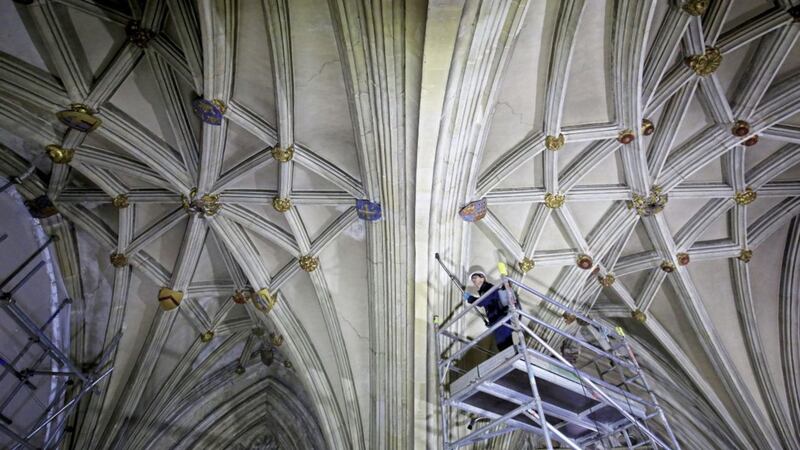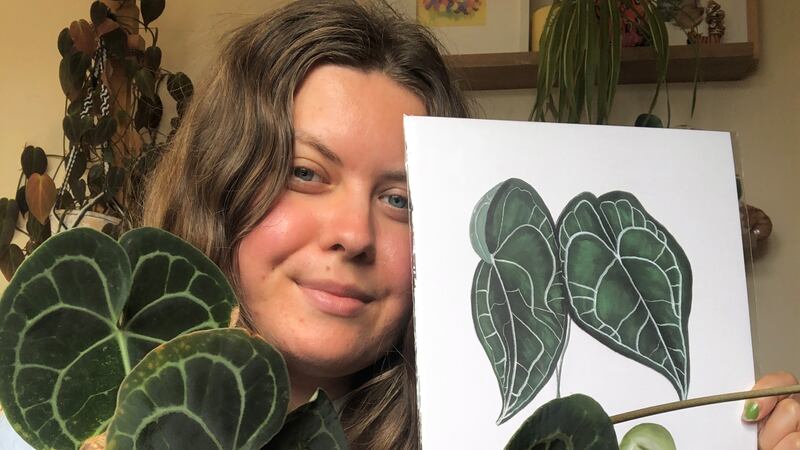AN emotion frequently addressed in the Bible is, not surprisingly, the emotion of fear.
For all its charm, life is full of dangers and pitfalls. Understandably, people can be acutely sensitive to its pressures and fear its many hidden traps.
Given the omnipresence of fear in human life, any religion will have to give thought to it.
And not just any religion, but political rulers too will not be unaware of the potency of fear.
Indeed, fear has frequently been regarded as the ultimate basis of political power.
But even though fear is taken to have almost exclusively negative connotations, it is curious to note that it doesn't actually appear to be something we wish only to reject or avoid.
It also seems to be something we, in a rather strange sense, often seek out deliberately.
Why do people like going to see horror films, for example, if they don't somehow like and even enjoy the experience of being frightened?
Fear would seem to be a strong indicator of one of the deepest and most obvious truths about the human condition, which is that we are never, and can never be, fully in control of our lives and of our destinies.
Fear appears to be connected with a felt realisation that our lives are controlled by forces beyond us.
And so we apparently relish, or are attracted by, fear because it seems to bring us into close, even immediate, contact with this truth, or at least it seems to bring us closer to this truth than we usually think we are in everyday life.
Fear, in a way, takes us 'out of ourselves' and seems to put us, for a short time anyway, in touch with what lies beyond us.
The more keenly we feel fear, the closer in a sense we seem to be to the ultimate powers in reality, the closer in fact we seem to be to God.
But are we? The claim that in this world it was fear that first created gods is attributed to the Roman writers Petronius and Statius, both of whom lived, interestingly enough, in the very century in which Christianity was born.
But if religion is simply the result of human fear or, worse still, the result of the manipulation of human fear, then that would surely throw a rather dubious light on belief in God.
Christianity, however, talks about the love that casts out fear: "There is no fear in love. But perfect love drives out fear" (1 John 4:18).
Christianity doesn't, of course, deny the reality of fear. How could it? But it never claims that it is fear that creates or gives rise to true faith.
The well-known story in the Gospel of Matthew (14:22-33) describing the fear of Jesus' disciples caught up in a storm on a lake can perhaps help to make some sense of all the apparent contradictions that surround the experience of fear and faith.
In the account of the incident, the reality of human fear is highlighted.
If religion is simply the result of human fear or, worse still, the result of the manipulation of human fear, then that would surely throw a rather dubious light on belief in God
The disciples' fear of the storm that gets their boat into difficulties, their fear of what they first take to be a ghost, as Jesus approaches them walking on the lake, and finally Peter's own fear of drowning as he walks towards Jesus over the waves: all these kinds of fear are acknowledged as genuine human experiences.
But none of this is equated with faith in God. Fear is not presented as leading to, or producing, faith.
On the contrary, Jesus himself encourages his disciples not to be afraid. And this suggests that real faith is something different from fear, different even to the extent of being able to overcome fear.
Fear, in other words, can alert us powerfully to a basic truth of the human condition, which is that we are dependent on what transcends us.
And this, I think, is what Scripture implies by saying that the fear of God is the beginning of wisdom; Scripture doesn't say: "The beginning of faith...".
What Scripture is referring to is surely the sense of reverence or awe instinctively felt before the splendour and transcendence and majesty and mystery of the living God.
But faith is something more than fear. Faith cannot be a matter of 'bribing God' or 'buying God off' by some kind of fear-driven attitude or activity - somewhat like the way, it is thought, ancient people used to throw coins into fountains and wells in order to placate the spirits governing the life-giving and also, of course, death-dealing element of water: a custom that continues, albeit in a playful kind of way, even to this day.
Faith in God is something other than fear, because God is something other than a power that inspires fear.
God is not just another word, or another name, for the power that makes life possible, and over which we have no control.
Above and beyond that, God, for Christianity, is the reality of love: he created us and became incarnate, became human, in Jesus Christ; and he offers everyone a share in the divine life here on earth and beyond this world for all eternity in heaven.
- Martin Henry, former lecturer in theology at St Patrick's College, Maynooth, is a priest of the diocese of Down and Connor








